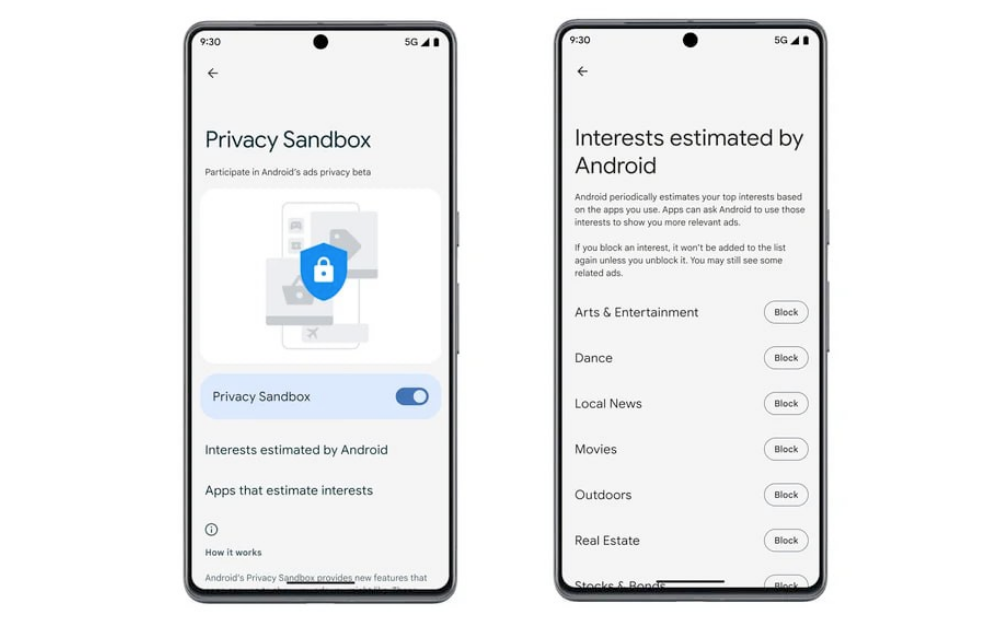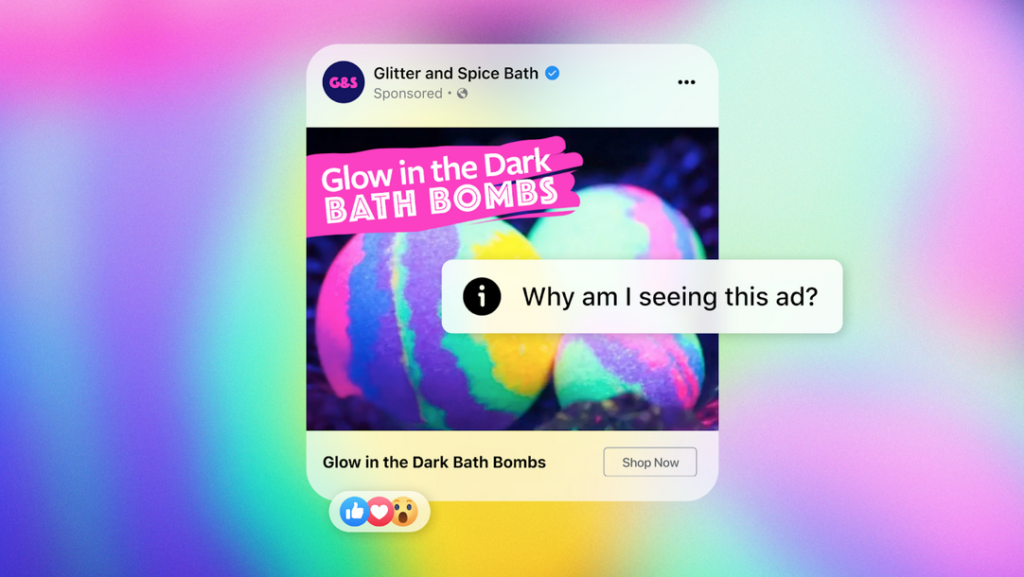Mobile Video Monthly #33 – February 2022
App News
March 6, 2023
February may be the month of love but there’s no love lost between TikTok and governments, while the video streaming app is being banned on government phones, Google is introducing its Privacy Sandbox Beta for mobile and Playtika is suspending game launches until the marketing landscape improves.
Google’s Privacy Sandbox beta is coming to mobile
After officially announcing the Android Privacy Sandbox last year, Google has finally entered the next phase of the initiative: rolling out the first Beta to eligible devices. The Mountainview firm has worked with developers and advertisers on the Android version of their cookie-less future.
This Privacy Sandbox will provide new APIs that do not use tracking identifiers. Users will receive an Android notification if their devices are selected for the beta test and they will be able to see and manage the interests apps have access to in order to show relevant ads.

So far, several industry actors involved in the process (like Rovio, Adjust and Appsflyer) have shared their perspectives and opinions on the Privacy Sandbox with Google. If you wish to participate in the Beta, Google has published a developer guidance.
Nobody wants Microsoft to buy Activision
Both the UK and the EU are objecting to Microsoft’s acquisition of Activision Blizzard. Britain’s Competition and Markets Authority (CMA) provisionally warned against the acquisition because it could lead to the selloff of the Call of Duty franchise, and a lessening in competition (with higher prices, fewer choices and lesser innovation for the UK market).
Most of the questions and objections around this deal concern the Call of Duty franchise. They believe that Microsoft owning full rights over it could pose problems for rivals like Sony (and its PS5). In the meantime, Microsoft is closing deals with Nintendo, promising to carry some of their games to the Nintendo Switch, maybe in an attempt of good faith.
The deadline for the CMA’s final report is set for April 26. The US Federal Trade Commission is still investigating the acquisition and is, so far, planning to block the takeover. The European Commission is set to make a decision by April 11 and already issued its objections.
TikTok faces governmental pressure to be removed from app stores
TikTok’s brand engagement may be stronger than Twitter, Facebook and Instagram, but governments are getting skittish around the Chinese video app. In Europe, it started with the Netherlands, showing concern about TikTok’s presence on government phones. It was quickly followed by the European Commissions ordering their staff to remove the video app from work devices. Now the US is also threatening to ban TikTok.
TikTok may not be available on government devices anymore, but it will soon be available on Mercedes’ in-car display. Spotify is planning to launch a TikTok-like feed as well and TikTok is currently testing in-app games in the UK (with 14 hyper casual games so far).
Playtika suspends new game launches because of the marketing landscape
Playtika announced they would stop launching new titles until the “marketing landscape fundamentally changes” during the reporting of their Q4 2022 results. They will instead focus on investing in “high growth potential studios” like Ace Games.
According to them, the ROI for new games is not economically viable and it’s too challenging to scale these games profitably. They will shift spending towards UA and their growth titles.
Playtika’s overall revenue for 2022 was up 1.3% YOY to $2.616bn.
Japan targets Apple and Google’s duopoly
The Japan Fair Trade Commission (JFTC) finally released the findings of its investigation into the Japanese mobile app market. According to them, Apple and Google do not face enough competition pressure.
After “exchanging opinions” with the Australian Competition and Consumer Commission, the UK’s Competition & Markets Authority and the European Commission, the JFTC made several recommendations:
- Providing access to third party app stores and alternative payment methods
- Enabling sideloading (as long as it doesn’t cause security or privacy issues)
- Offering third party developers access to the same OS features and information regarding app store updates
- Not using data generated from third party apps to develop competing apps
- Not imposing technical (or other types) limitations on mobile users when they switch apps and/or services
- Respecting users preferences by displaying choice screens
- Being more transparent about app store operation costs, revenue, rankings, search results, recommendations, etc.
Meta aims to increase transparency around ads
Facebook will now have a “Why am I seeing this ad?” button available on ads. Through it, users will be able to access ads preferences, examples and illustrations of how Meta’s machine learning models choose relevant ads, and which information was used to deliver the ads seen (such as liking a friend’s post or interacting with a page/website).
While ATT put them in a precarious position, advertising-wise, Meta is trying to get ahead of legal changes and implement transparency beforehand.

In addition to that, Meta is still looking into users for Horizon Worlds, targeting, this time, a younger audience. The company also launched its very own blue checkmark subscription for Facebook and Instagram, it costs $14.99/month on mobile to account for the infamous 30% commission. Instagram announced it would put an end to live shopping in March to focus on ads instead.
Twitter is not ready for the DSA
Ever since Elon Musk’s acquisition of the platform, Twitter has had a few rocky months. The European Commission asked the biggest tech companies to provide a comprehensive report including what will be done to comply with the DSA’s new rules. For example, Twitter was asked to demonstrate how it would fight disinformation on its service.
However, Twitter was the only company that couldn’t provide a relevant report to impress the European Commission. The bird app still has a few more months to implement a strategy that will comply with the DSA.
What’s next for Twitter now? The platform just launched Twitter Coins, and is now allowing weed advertising and tweets with a 4K character limit. The social media also ended third-party clients’ free access to its API, bringing a premature end to some tools.
Numbers of the month
- Apple surpasses 2 billion active devices
- Almost 4 billion people use Meta’s apps in total
- TikTok hit 1 billion users in record time
- YouTube Shorts has hit 50 billion daily views
- Pinterest reaches 450M MAU, will focus on making videos ‘shoppable’
- Social Accounted for More Than 60% of Total U.S. Ad Spend
- MENA-3 games revenue to rise by 56% to $2.79bn in 2026
- Fitness apps now need $4 million in revenues to rank top in app stores
- Over 1.8M abandoned apps found on app stores
- 91% of businesses use video as a marketing tool in 2023 -report
- Social app and influencer commerce revenues are underreported by 245%
- 60% of engagement on media platforms happens on mobile
- U.S. spending on dating & social discovery apps hits $1.4 billion in 2022
- BeReal users decline by 48% from October peak
- Utilities ad performance grew by 20% during the World Cup
- Valentine’s Day in-app activity increases by 11% vs the rest of the February
- Casual mobile games dominates number of advertisers at 28%
- Mobile game industry scored $55.7 billion in 782 deals in 2022
- 81% of consumers embraced influencer marketing in the past year
- Two in five US adults now use health apps
- 80% of apps on Google Play have inaccurate data privacy labels
- The total global number of gamers will reach three billion this year
- AppLovin earns $702 million revenue in Q4 2022
- Alphabet Q4 earnings: Search down 2%, YouTube down 8%
- Tumblr iOS revenue increased 125% since launching its parody of paid verification
- 96% of marketers use video for app and mobile marketing
- Cost per install for hyper casual games hit an all-time high on both Android and iOS with Android rising $0.05 to $0.20 while iOS rose $0.17 to $0.42, more than twice the cost
What we talked about this month
- Seasonalize for Valentine’s Day with in-app events
- Boost your conversions with Custom Product Pages
- Reaching new audiences with Apple Search Ads
- Mobile Video Monthly #38 – November 2023 - 5 December 2023
- Disturbing ads, a new trend for mobile gaming creatives? - 28 November 2023
- The Power of Holiday Marketing in Boosting Mobile Game Engagement - 21 November 2023










